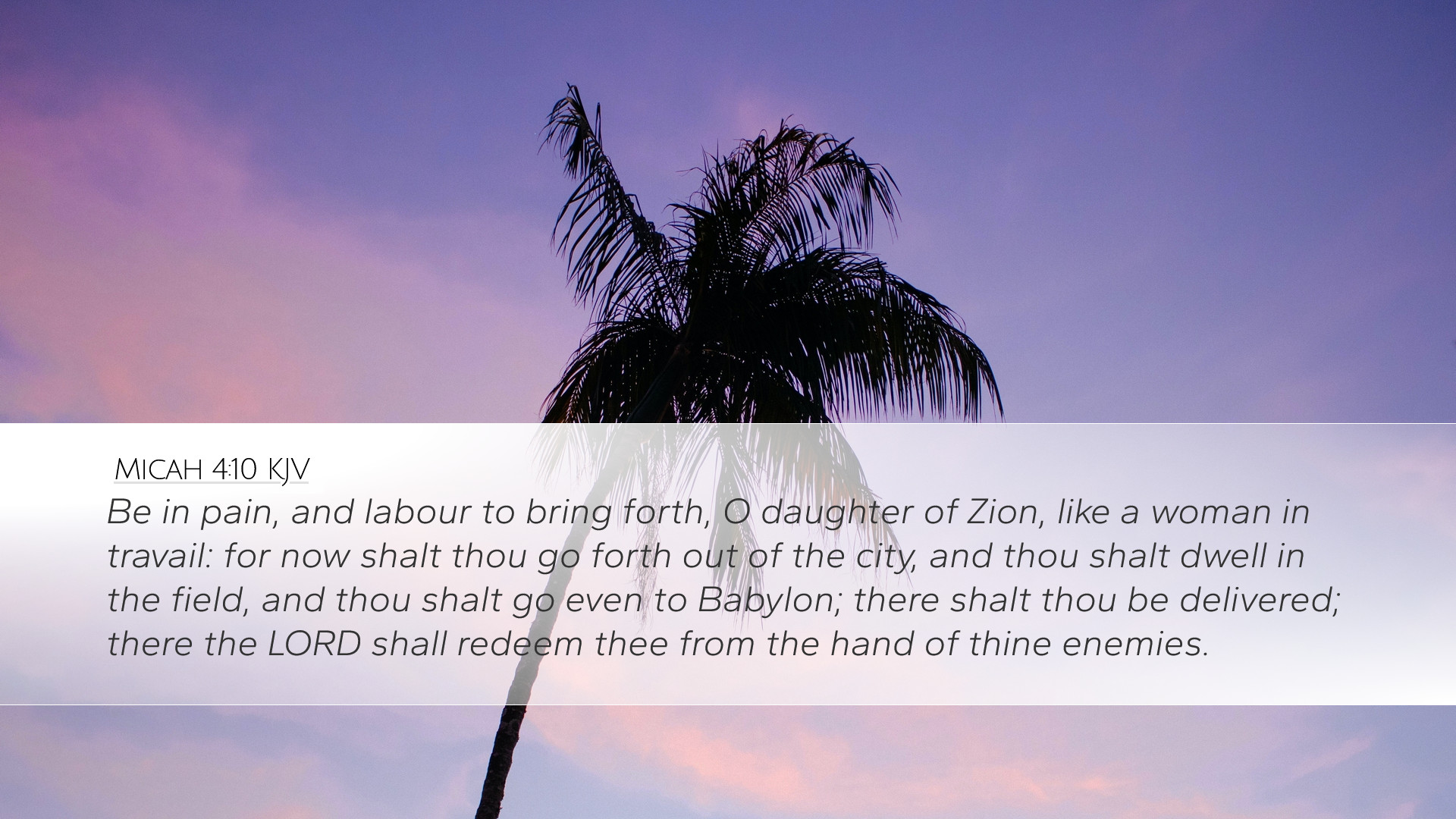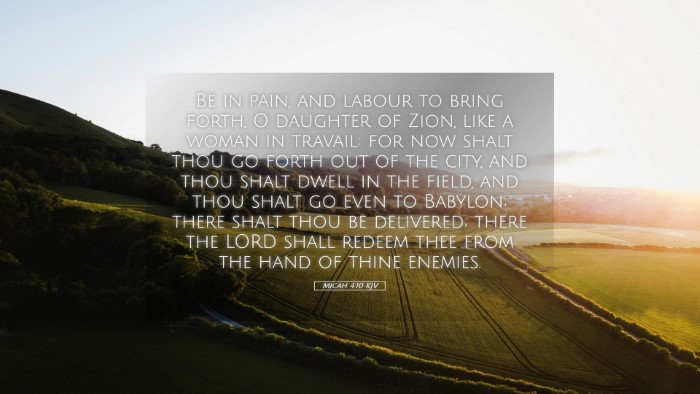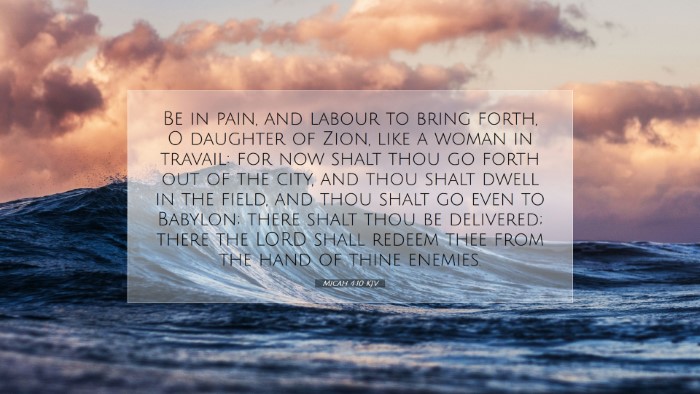Old Testament
Genesis Exodus Leviticus Numbers Deuteronomy Joshua Judges Ruth 1 Samuel 2 Samuel 1 Kings 2 Kings 1 Chronicles 2 Chronicles Ezra Nehemiah Esther Job Psalms Proverbs Ecclesiastes Song of Solomon Isaiah Jeremiah Lamentations Ezekiel Daniel Hosea Joel Amos Obadiah Jonah Micah Nahum Habakkuk Zephaniah Haggai Zechariah MalachiMicah 4:10
Micah 4:10 KJV
Be in pain, and labour to bring forth, O daughter of Zion, like a woman in travail: for now shalt thou go forth out of the city, and thou shalt dwell in the field, and thou shalt go even to Babylon; there shalt thou be delivered; there the LORD shall redeem thee from the hand of thine enemies.
Micah 4:10 Bible Commentary
Commentary on Micah 4:10
Verse: Micah 4:10 – "Be in pain, and labour to bring forth, O daughter of Zion, like a woman in travail: for now shalt thou go forth out of the city, and thou shalt dwell in the field, and thou shalt go even to Babylon; there shalt thou be delivered; there the Lord shall redeem thee from the hand of thine enemies."
Introduction
This verse encapsulates a profound moment of prophetic insight given to the people of Israel, particularly focusing on Zion, the city of God. The call to "be in pain and labour" symbolizes the intense suffering and trials that are part of the process leading to restoration and redemption. Through the themes of travail, exile, and eventual salvation, this verse invites deep theological reflection on God's faithfulness amidst human suffering.
Exegesis of the Text
Historical Context
The Book of Micah was written during a tumultuous period in Israel's history, characterized by social injustice, idolatry, and moral decline. Micah prophesies during the reigns of Jotham, Ahaz, and Hezekiah, leading up to the Assyrian invasion. These historical pressures contextualize the call to "labour" and the assurance of deliverance.
The Metaphor of Travail
Micah employs the metaphor of a woman in travail to convey the difficulty and anguish of the impending judgment paired with the hope of new birth and restoration. Like labor pains that lead to the joy of a newborn, the current sufferings of Zion will result in new life and a renewed relationship with God.
Theological Insights
1. The Nature of Suffering
Both Matthew Henry and Adam Clarke highlight that the suffering described in this verse is not without purpose. It serves to prepare God's people for greater blessings that await them post-exile. This can resonate in the lives of modern believers who find themselves in trials.
2. Exile and Return
Micah references a literal journey from the city to Babylon, symbolizing the deeper spiritual journey of God's people. Albert Barnes emphasizes the assurance of return, underscoring God's promise to deliver His people from captivity, which draws parallels with New Testament themes of redemption.
3. God’s Sovereignty
This verse reflects the sovereignty of God over the nations and history. God's allowance of suffering doesn’t negate His ultimate plan for restoration. This is a common thread in public domain commentaries, where God’s faithfulness stands central amid human failure.
Applications for Today
Pastoral Insights
Pastors can draw from this verse a message of hope for congregants facing strife. The imagery of pain leading to new life can comfort those in trials, reminding them of divine purposes behind suffering.
For Students and Theologians
The verse invites deeper study into the Old Testament prophecies and their fulfillment in Christ. Understanding Micah's context can enhance theological insights regarding eschatological views and God’s redemptive plans.
Practical Church Life
In a broader community framework, churches may consider how this call to travail can express their collective burden for the world: “labour to bring forth” might extend to social justice initiatives and outreach programs, reflecting Christ’s love and the reality of suffering.
Conclusion
Micah 4:10 serves not only as a historical prophecy but as a living word which speaks to the struggles of God's people throughout the ages. The intertwining themes of suffering and redemption remind us that pain can bear fruit, and that God remains faithful to deliver and restore His people. As we contemplate this verse, we are both challenged and comforted: challenged to endure travail, yet comforted by the assured promise of deliverance from the hand of our enemies.


